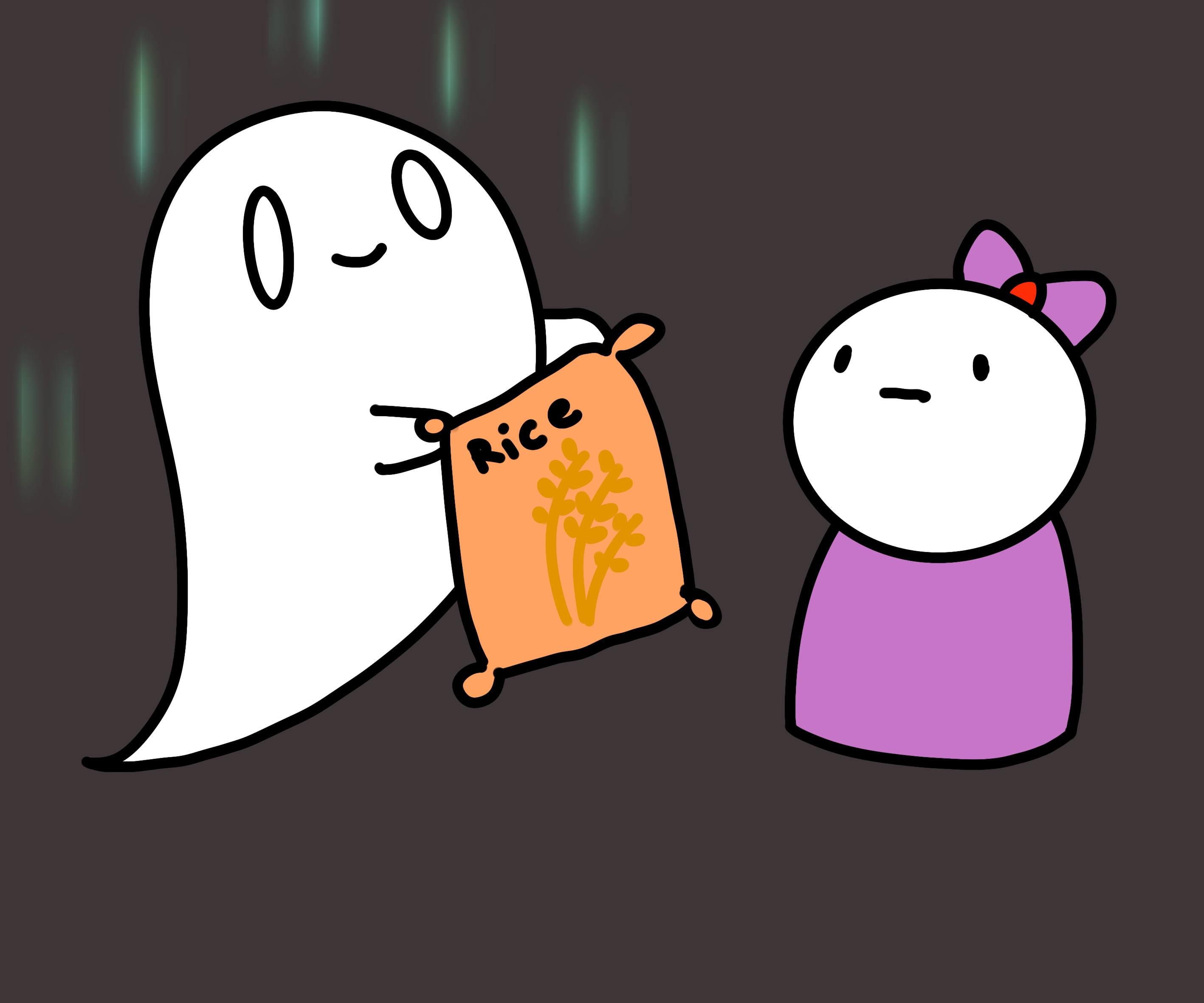The ghost gave me a sack of rice
ผีฝากถุงข้าวสารให้ฉัน
An expression to help Thais memorize their high toned consonants
We've already discussed mid toned and single low toned. They both started off at neutral tone when you don't put any tone marks on them. Now, high consonants are different. In their neutral writing (without the tone mark), they are pronounced like a fourth tone. They are paired with paired low consonants to get all 5 tones, so all of these letters in this category will share the same sounds as the ones that are paired low consonants. That's why they are called paired.
the table below will show you how high toned consonants compare to the mid toned, and single low consonants
| neutral | first tone(เอก: ่ ) | second tone(โท: ้ ) | third tone(ตรี: ๊ ) | fourth tone(จัตวา: ๋ ) | |
|---|---|---|---|---|---|
| mid (ก) | กา | ก่า | ก้า | ก๊า | ก๋า |
| single low(น) | นา | หน่า | น่า or หน้า | น้า | หนา |
| high | ส่า | ส้า | สา |
As you can see the tones are still the same vocally but in written form, they just have different formats. You can see that it's missing a form on the neutral and third tones. We'll need the low toned consonant that is corresponds to this consonant in order to complete all 5 tones. We'll get to that next lesson.

